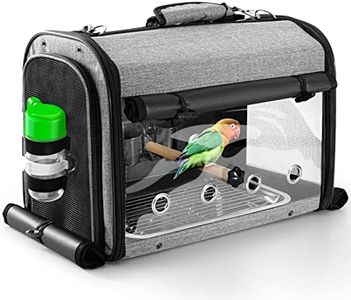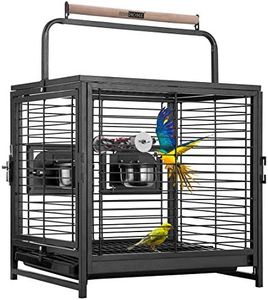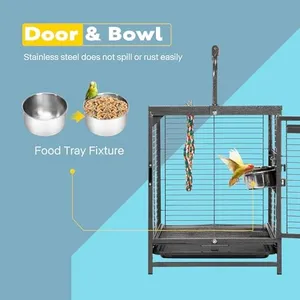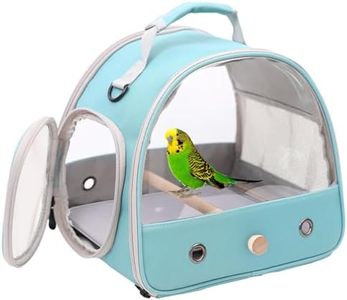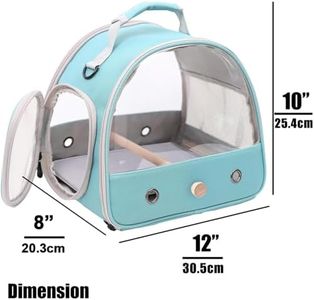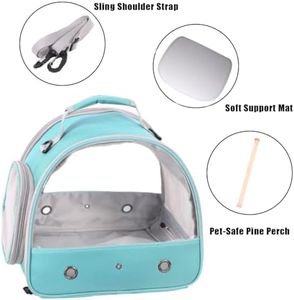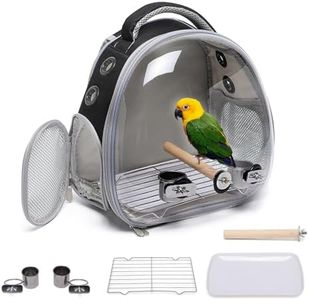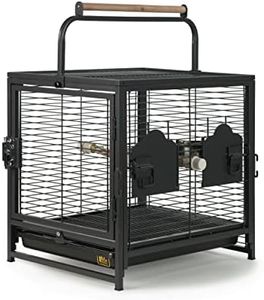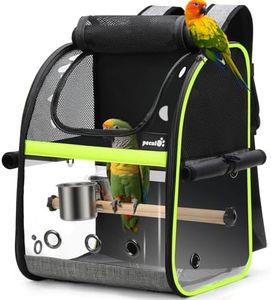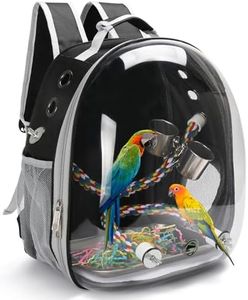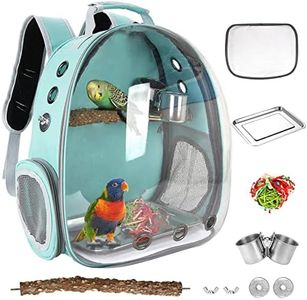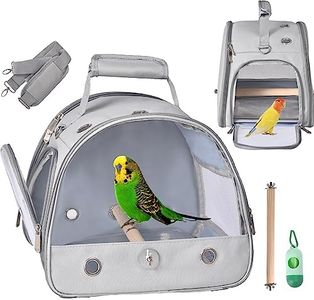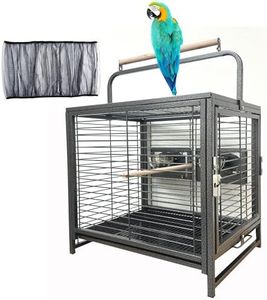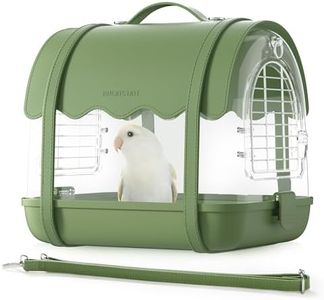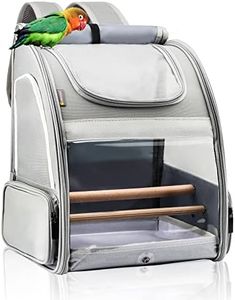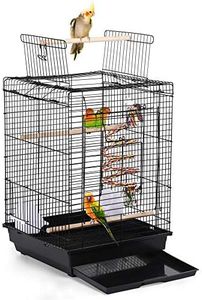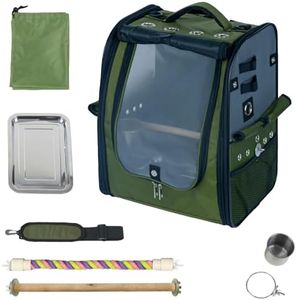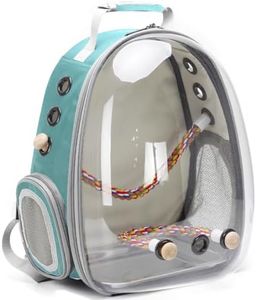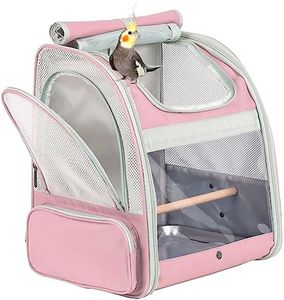10 Best Bird Carriers 2025 in the United States
Winner
SUERTREE Bird Carrier Bag Bird Travel Cage with Stand, Lightweight Backpack for Parrot, Portable Bird Travel Bag, Pet Transparent Breathable Travel Cage
The SUERTREE Bird Carrier Bag is a versatile and portable travel cage designed for various small to medium-sized birds such as Cockatiels, Conures, and Parakeets. With its dimensions of 17.6'L x 10.6'W x 13.3'H, the carrier is spacious enough to accommodate your bird comfortably while remaining lightweight at just 3 pounds. This makes it easy to carry with either the handle or shoulder strap, and you can even secure it in the car with a seatbelt for safe travels.
Most important from
606 reviews
VIVOHOME 19 Inch Wrought Iron Bird Travel Carrier Cage for Parrots Conures Lovebird Cockatiel Parakeets Black
The VIVOHOME 19 Inch Wrought Iron Bird Travel Carrier Cage is designed for transporting small birds like parrots, conures, lovebirds, cockatiels, and parakeets. The cage's sturdy construction, made of premium low-carbon steel with a black coating, ensures durability and resistance to wear and rust. This makes it a strong and lasting choice for bird owners. Weighing just 14 lbs., the cage is lightweight and easy to carry, making it ideal for short-term travel.
Most important from
1077 reviews
Top 10 Best Bird Carriers 2025 in the United States
Winner
10.0 score
SUERTREE Bird Carrier Bag Bird Travel Cage with Stand, Lightweight Backpack for Parrot, Portable Bird Travel Bag, Pet Transparent Breathable Travel Cage
SUERTREE Bird Carrier Bag Bird Travel Cage with Stand, Lightweight Backpack for Parrot, Portable Bird Travel Bag, Pet Transparent Breathable Travel Cage
Chosen by 1403 this week
VIVOHOME 19 Inch Wrought Iron Bird Travel Carrier Cage for Parrots Conures Lovebird Cockatiel Parakeets Black
VIVOHOME 19 Inch Wrought Iron Bird Travel Carrier Cage for Parrots Conures Lovebird Cockatiel Parakeets Black
Ioview Bird Carrier Cage, Pet Travel Carrier Backpack with Standing Perch,Parrot Cockatiel Carrier Bag, Food Bowl for Lovebirds Conures Parakeet Budgie Canary & Small Animal (Accessories+Black)
Ioview Bird Carrier Cage, Pet Travel Carrier Backpack with Standing Perch,Parrot Cockatiel Carrier Bag, Food Bowl for Lovebirds Conures Parakeet Budgie Canary & Small Animal (Accessories+Black)
Prevue Pet Products Travel Carrier for Birds, Black 18.8"L x 14.9"W x 18.0"H
Prevue Pet Products Travel Carrier for Birds, Black 18.8"L x 14.9"W x 18.0"H
Texsens Bird Carrier Backpack - Pet Travel Cage with Upgraded Tray and Standing Perches, Breathable & Portable, for Small Birds, Green Cheek, Cockatiel, Parrot (Grey)
Texsens Bird Carrier Backpack - Pet Travel Cage with Upgraded Tray and Standing Perches, Breathable & Portable, for Small Birds, Green Cheek, Cockatiel, Parrot (Grey)
Yaheetech Open Play Top Travel Bird Cage for Conure Sun Parakeet Green Cheek Conure Lovebird Budgie Finch Canary, Small-Size Travel Portable
Yaheetech Open Play Top Travel Bird Cage for Conure Sun Parakeet Green Cheek Conure Lovebird Budgie Finch Canary, Small-Size Travel Portable
Birds Day Bird Carrier Backpack-Parrot Travel Cage with 2PCS Perch and Food Bowl, Stainless Steel Tray (Dark Olive Green, Small to Medium Birds)
Birds Day Bird Carrier Backpack-Parrot Travel Cage with 2PCS Perch and Food Bowl, Stainless Steel Tray (Dark Olive Green, Small to Medium Birds)
Our technology thoroughly searches through the online shopping world, reviewing hundreds of sites. We then process and analyze this information, updating in real-time to bring you the latest top-rated products. This way, you always get the best and most current options available.

